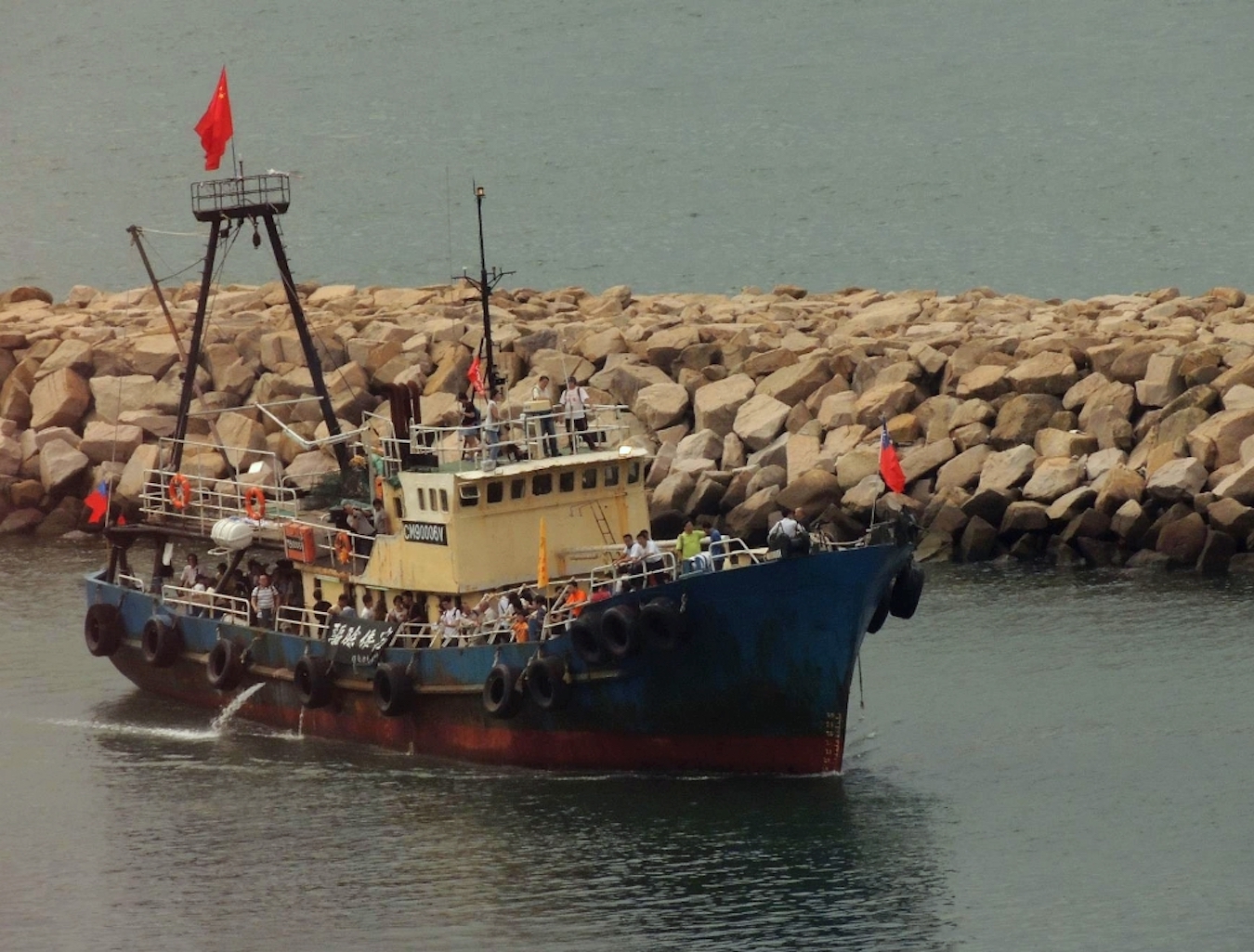by Brian Hioe
語言:
English
Photo Credit: Anna Frodesiak/WikiCommons/CC-
MARITIME CONTENTION BETWEEN Taiwan and China continues, following the rescue of two Taiwanese fishers by the Chinese Coast Guard after the two became adrift during a fishing trip. This occurred due to the engine failure of their vessel.
In particular, one fisher, a 40-year-old man surnamed Hu, was an active member of the Kinmen Garrison Bride of the ROC military. The Chinese government is currently holding Hu for interrogation, stating that Hu did not immediately disclose that he was a member of the military. The other fisher, a 25-year-old man surnamed Wu, has since been repatriated.
The Taiwanese government did not immediately disclose that Hu was a member of the military, perhaps due to the possibility of endangering him. However, the Chinese government is likely to use the incident to frame the Taiwanese government as being less than forthcoming on critical details, so as to skew the narrative in its direction.
This previously occurred in an incident when four apparent Chinese fishermen intruded in Kinmen territorial waters in a speedboat last month. When the fishermen refused to allow for a search by the Taiwanese Coast Guard and attempted to flee, their vessel capsized after colliding with a Coast Guard vessel.
 Photo credit: Tksteven/WikiCommons/CC BY 3.0
Photo credit: Tksteven/WikiCommons/CC BY 3.0
The Taiwanese Coast Guard did not immediately disclose that the speedboat had capsized because of a collision. As such, the Chinese government has framed the issue as due to the actions of the Taiwanese Coast Guard, claiming that harassment of Chinese fishermen has occurred regularly at the hands of the Taiwanese Coast Guard due to the directives of the Tsai administration.
The Chinese government has also used the incident to step up grey-zone activity directed at Taiwan. As such, one has seen searches of Taiwanese tourist ships by the Chinese Coast Guard in the past month. It is to be expected that such grey-zone activity will continue, as well as that China will use subsequent maritime incidents as pretext to escalate such activity. Since then, the Taiwanese Coast Guard has stressed that it will implement the use of body cameras to allow for greater transparency in such incidents.
It is to be seen whether information was illicitly disclosed to China by members of the KMT in Kinmen. Namely, comments by Kinmen legislator Chen Yu-chen of the KMT previously stated that both fishers were active members of the military, though Chen also stressed that both were simply fishing. Chen urged that direct cross-strait communications be established with China, while positioning herself as in a role to allow for this–the KMT has historically campaigned on the claim that it is the only political party in Taiwan able to communicate with the CCP since Taiwan’s democratization, going back to the history of both parties during the Chinese Civil War.
Chinese incursions into Taiwanese naval waters may be on the rise. Earlier this week, the Taiwanese Coast Guard drove off four Chinese fishing vessels 27 and 30 nautical miles off of the coasts of Taichung and Hsinchu.
Still, one notes that recent incidents have not prevented some level of cooperation between the Taiwanese and Chinese Coast Guards. In mid-March, following the speedboat deaths, the Taiwanese and Chinese Coast Guards cooperated after a fishing vessel with six onboard capsized. Two were killed in the incident.
Afterward, the Taiwanese Coast Guard stressed that such cooperation was normal, and that assistance requests from the Chinese Coast Guard are not unusual. In the past three years, there were seventeen such incidents, leading to the rescue of 119 individuals.
Nevertheless, one still expects the Chinese government to seek pretext to escalate its maritime activity directed at Taiwan when it can find such opportunities. It is to be seen whether even rescues of Taiwanese will be used for such purposes, even if it is also clear that the Taiwanese government could have responded faster in its information management strategy to avoid ceding the narrative to China.
Yet with a lack of scrutiny as to the government’s failure in actively seizing the narrative, it is unlikely there will be any reform. One notes, after all, the military and related agencies such as the Coast Guard was unanswerable to the general public, given its historic roots as the KMT’s enforcer during authoritarian times–even into the democratic present, the military and other sections of government chafe at oversight from civilians.

